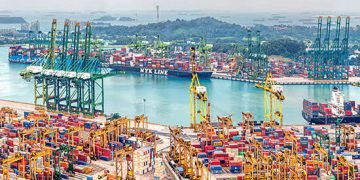Navigating the complexities of the Asia-Pacific logistics sector presents a myriad of challenges and opportunities for companies operating in this dynamic environment. Jeffrey Shih, CEO at Dimerco, offers invaluable insights into the strategies required to tackle these challenges effectively, shedding light on Dimerco’s approach and the broader industry landscape.
Addressing Regulatory and Transportation Challenges
The diverse regulatory landscape across the Asia-Pacific region poses a significant hurdle for logistics firms. Shih emphasizes the importance of staying informed and agile to navigate through customs regulations, import/export restrictions, and safety standards. This highlights the need for adaptive regulatory navigation strategies to ensure compliance and minimize delays.
Adapting to Market Volatility
The economic dynamism of the Asia-Pacific region brings both opportunities and uncertainties. Shih discusses Dimerco’s adoption of multimodal transport solutions and digital tracking technologies as strategic responses to market volatilities, emphasizing the need for flexibility and real-time information. This prompts the industry to consider scalable strategies for technological integration, especially for smaller entities.
Utilizing Local Insights
Local knowledge plays a crucial role in overcoming logistical challenges. Shih illustrates how Dimerco leverages on-the-ground insights to develop innovative solutions tailored to individual markets. This trend towards localized strategies reflects a broader industry shift towards balancing global capabilities with localized expertise.
Embracing Technological Innovation
Technological advancements are reshaping supply chain management, offering enhanced efficiencies. Shih highlights Dimerco’s proprietary systems, such as the Dimerco Value Plus System®, as examples of technology’s transformative impact on logistics operations. However, this digital transformation underscores the need for widespread technological adoption across the industry.
Focusing on Customer-Centric Solutions
A client-centric approach is essential in meeting diverse market demands. Shih emphasizes the importance of developing customized solutions to address the unique needs of each client, reflecting a broader industry trend towards agility and responsiveness.
Anticipating Future Trends
Shih discusses future trends such as diversification strategies and sustainability, emphasizing the importance of strategic foresight. These anticipated trends underscore the need for forward-looking strategies that integrate technological innovation and sustainability practices.
In summary, Shih’s insights underscore the strategic imperatives for logistics companies operating in the Asia-Pacific region. As companies navigate through regulatory complexities, market dynamics, and technological advancements, their experiences offer valuable lessons on adaptability, innovation, and strategic foresight in the modern logistics landscape.























